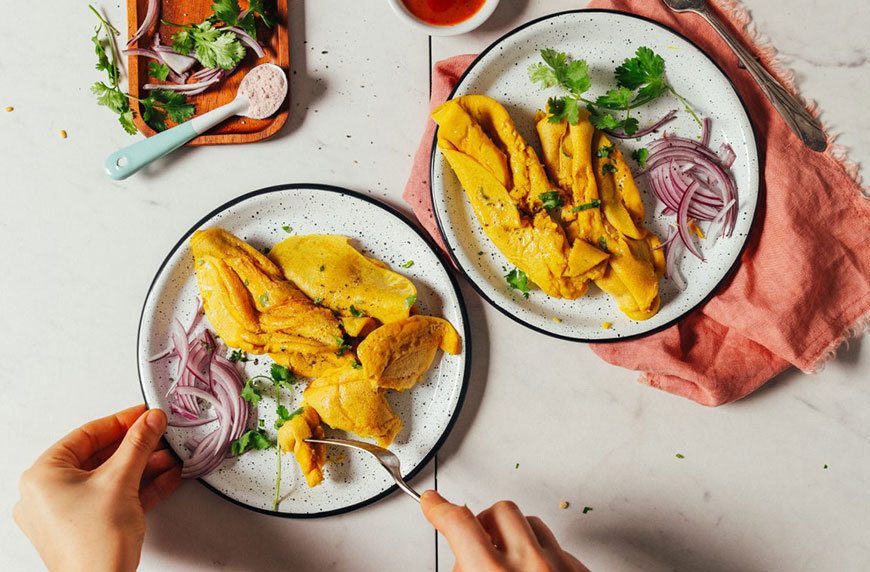
August 21, 2019 at 01:00PM by CWC
Up until a year ago, the only reason I even knew mung beans existed was because they’re the stinky snack Creed sprouts in his desk drawer on The Office. Then Just Egg product released its product made from mung bean protein, and it promptly made all my vegan omelet dreams come true. (And made me feel a bit more connected to Creed, FWIW.)
I feel the liquid egg alternative made from mung beans is a dead ringer for the real deal—in terms of taste, texture, and looks. Now, a year after its release, the product is available in major grocery stores across the country (including Costco, which sells it in bulk at select stores), and even Canadian coffee chain Tim Hortons is testing it as a potential menu item. And more and more people are choosing to wake up to what’s now become an old guard breakfast staple in my fridge—for purposes beyond being a plant-based egg swap, no less. Some are using recipes to create meat-free veggie burger patties, a different take on hummus, and even popsicles. (Yes, really.)
Still, when asked about mung bean protein and how the ingredient stacks up nutritionally compared to traditional eggs, I was at a loss. Whether you’re using Just Egg, making a mung bean scramble from scratch (I highly recommend Minimalist Baker’s delish recipe, pictured above!), or using the ingredient in different recipes, it’s smart to know how it stacks up nutritionally. So below, check out how ingredient compares to eggs, according to USDA data.
How real eggs compare to mung beans nutritionally.
1 large egg (cooked, hard-boiled):
Calories: 78 calories
Protein: 6 grams
Carbohydrates: .6 grams
Fiber: 0 grams
Sugars: .6 grams
Cholesterol: 186 mg
Calcium: 25 mg
1/2 cup mung beans (cooked):
Calories: 106 calories
Protein: 7 grams
Carbohydrates: 20 grams
Fiber: 8 grams
Sugars: 2 grams
Cholesterol: 0 mg
Calcium: 28 mg
The breakdown:
While mung beans do pack a carb-y punch, the serving contains more protein, calcium, and fiber than a hardboiled egg—and it also contains zero cholesterol. And since every person has different food requirements and preferences, knowing mung beans are a top-notch plant-based ingredient you can use for a variety of meals can open your nutritional doors and help you make the best meal choices for you.
Want to dig into plant-based diets even more? Here’s what a healthy, balanced plate should look like when you’re vegan. Then grab your air fryer and test out these 10 super-easy vegan recipes.
Author Tehrene Firman | Well and Good
Selected by CWC
ADVERTISEMENT
ADVERTISEMENTUp to 30% off Gift Sets |







